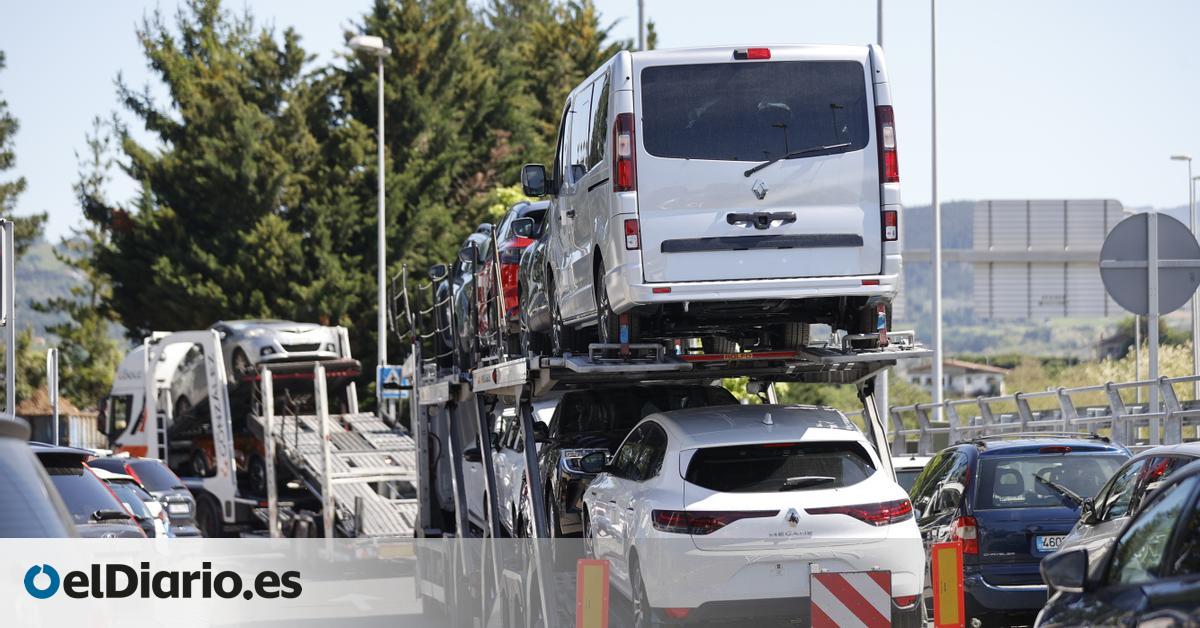
With days to go before 2025, pressure to eliminate the fines planned for the European automotive sector that does not comply with the legal obligation to reduce C02 emissions has intensified. The European People’s Party has joined the employers’ request for the European Commission to review the legislation and eliminate those sanctions that will begin to materialize next year, while some manufacturers, such as Volvo, consider that there has been time to do their homework to adapt without taking steps back towards the impulse of the electric car.
The legislation promoted by the previous legislature within the framework of the European Green Deal stipulated that vehicles sold in the EU between 2025 and 2029 will have a maximum emission limit of 93.6 grams of CO2 per kilometer. On the verge of it beginning to be applied, the figure was 106 grams this year and 117 in 2023. For this reason, the automotive employers’ association already warns that it does not arrive in time to meet the objectives at a time when which is not exactly going through its best moment, especially due to the strong competition from China.
“If the European Commission does not move, companies like ours will have to put 15 billion euros in the fridge, which will not go to investment,” the president of the European Automobile Manufacturers Association (ACEA) warned this Tuesday in Brussels and CEO of Renault, Luca de Meo, who demanded “flexibility” from the European Commission with the argument that the fines will harm investment at a key moment for the automobile industry. “We are the ones who put in the money, the face and the neck,” he added.
The ACEA fight also occurs when it gains weight due to the return of the Stellantis group (Citröen, Peugeot, Opel…) to the organization, which it left in 2022 precisely due to the fight against the ban on combustion cars. diesel and gasoline from 2035. The departure of CEO Carlos Tavares has modified that position.
“Electrification is the most important measure the automotive industry can take to mitigate the worst effects of climate change. It is also essential for Europe’s competitiveness. We must move towards the future, not remain stuck in the past,” said Vanessa Butani, Director of Global Sustainability at Volvo, in a meeting with journalists: “Questioning the CO2 emissions target is not the answer.” Butani advocated promoting “demand support measures, such as taxes and financial incentives.”
The European People’s Party, which voted together with the extreme right against the new ‘green’ rules for the automotive industry, also advocates eliminating the fines that would have to be imposed starting next year. “We want to avoid sanctions,” said German EPP MEP Jens Gieseke at a press conference this Wednesday, who presented the strategy agreed upon by the group regarding the motor industry. What they want is for the European Commission to provide “flexibility” with a longer calculation period for the imposition of fines or to not only take into account registered cars, but rather manufactured ones when accounting for emissions.
The conservative parliamentarian was optimistic about the influence they can have on Ursula von der Leyen, from her political family, which is the one with the greatest weight in the European Parliament and, above all, the ability to put together an alternative majority with the extreme right. . In fact, it is expected that the Commissioner for Sustainable Transport, the Greek Apostolos Tzitzikostas, will begin a dialogue with the sector to design a strategy for the automotive industry that the German company will directly supervise.
However, the new leaders of the community government have not left room for the flexibility that the EPP wants. “I don’t think we can now review the commitments we made and that this Parliament made on how to move forward with the automobile industry,” said Climate Action Commissioner Wopke Hoekstra in his review before the European Parliament.
The other leg that the PPE is betting on, furthermore, is to rethink the model so as not to focus it exclusively on the electric car. “The best thing is to have a broad approach, without excluding any technology and without having a single solution for electrification. “This would mean that if we are flexible and innovative in inventing new fuels, there could be a future after 2035 for combustion engine cars if the fuel meets our CO2 targets,” Gieseke said. The intention is that the combustion engine supply chain can operate beyond 2035 with e-fuels or biofuels.
“The elephant in the room is why the consumer does not see all the advantages of this green transition because perhaps the infrastructure does not exist. The price is too high. There are many factors, and my idea is not to penalize an industry that suffers anyway,” Gieseke added.
Along the same lines, De Meo regretted that the European population, especially the middle class, does not have the economic capacity to buy cars, a market that he assured is 25% below the historical average. He also recalled that the EU is the only region that has not recovered pre-covid levels. “It is no secret that the European middle classes are losing purchasing power,” warned the head of the automotive industry association.
Source: www.eldiario.es

